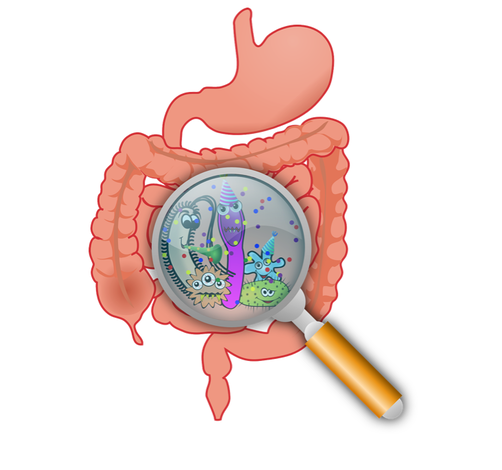This is the second article in a series exploring autoimmune disease with a holistic lens. Don’t miss upcoming articles diving into chronic infections, nutrition, hormones, environmental medicine and mind body medicine.
The National Institutes of Health estimate that 5-8% of Americans have an autoimmune disorder. There are approximately 80 human diseases caused by an autoimmune response and that list keeps getting longer. Autoimmune disease occurs when our immune system attacks our own tissues by mistake. This attack can escalate and lead to tissue destruction such as the joint tissue destruction seen in Rheumatoid Arthritis (RA).
Naturopathic Medicine takes a holistic or whole-person approach to treating and managing autoimmune disease. An important part of the holistic approach is to explore root causes or triggers of disease. We go searching for areas where the body is out of balance. In a series of articles I will cover different aspects of this search for root causes for autoimmune disease including environmental exposures, hormones, mind/body medicine, nutrition, and chronic infections. We are starting with a major area - gastrointestinal health.
Gastrointestinal (GI) or ‘gut’ health is a foundation of Naturopathic treatments. You have probably heard the saying ‘health starts in the gut’. There is a lot of truth in that statement for several reasons; the GI tract is responsible for digestion and assimilation of nutrition, it’s where the majority of our immune system and microbiome reside, and it’s a major training ground for our immune system.
Microbiome: We have trillions of microorganisms (bacteria, viri, parasites) living in our GI tract. This is called the microbiome or gut microbiota. Your microbiome starts to develop the moment you are born and complete colonization occurs within the first three years of life. Starting at birth, our microbiome helps train the developing immune system. The commensal (good) microbes can directly attack the disease causing microbes signaling to the human immune system when to launch an attack. This training also includes teaching the immune system to ignore harmless stimuli (such as pollen or even self tissue). Without this critical training we are more at risk for conditions such as autoimmune disease and allergies.
When our microbiome is unstable or out of balance it is called ‘dysbiotic’. We are finding that a dysbiotic flora or dysbiosis is a factor in many conditions including autoimmune disease. Dysbiosis increases the production of inflammatory cytokines.
Molecular mimicry: This is a critical piece to autoimmune disease. The basic concept is that your body mounts an immune response to something (pollen, food, virus, bacteria, etc.) and then those immune cells become confused and start attacking your tissues. Klebsiella in the GI has been associated with ankylosing spondylitis and ulcerative colitis; Yersinia in the GI has been associated with autoimmune thyroid conditions; Citrobater in the GI has been associated with rheumatoid arthritis to name a few. Association isn’t causation but it warrants investigation especially into the microbiome of patients with autoimmune disease.
Intestinal permeability: Intestinal permeability is often called “leaky gut”. Our GI tract is technically outside of our body, you could eat a penny and it would pass right through your GI and out into the stool. Your body determines what is brought in through the GI tract into your bloodstream. When there is a breakdown in this process and larger particles are allowed into the blood we call that intestinal permeability. When larger strings of amino acids (pieces of food that aren’t entirely broken down) make it through, the body attacks these as foreign invaders (as it should!). This attack can go awry and lead to attack on your own bodily tissues. Intestinal permeability is caused by stress, poor diet, food additives, overuse of NSAIDS, alcohol and more.
Assessing digestive health is often a first step working with autoimmune patients. Each approach is tailored to the patient.
If you are struggling with an autoimmune disease I recommend working with a naturopathic doctor to help identify the root cause and support your body.
Resources:
Naturopathic Medicine takes a holistic or whole-person approach to treating and managing autoimmune disease. An important part of the holistic approach is to explore root causes or triggers of disease. We go searching for areas where the body is out of balance. In a series of articles I will cover different aspects of this search for root causes for autoimmune disease including environmental exposures, hormones, mind/body medicine, nutrition, and chronic infections. We are starting with a major area - gastrointestinal health.
Gastrointestinal (GI) or ‘gut’ health is a foundation of Naturopathic treatments. You have probably heard the saying ‘health starts in the gut’. There is a lot of truth in that statement for several reasons; the GI tract is responsible for digestion and assimilation of nutrition, it’s where the majority of our immune system and microbiome reside, and it’s a major training ground for our immune system.
Microbiome: We have trillions of microorganisms (bacteria, viri, parasites) living in our GI tract. This is called the microbiome or gut microbiota. Your microbiome starts to develop the moment you are born and complete colonization occurs within the first three years of life. Starting at birth, our microbiome helps train the developing immune system. The commensal (good) microbes can directly attack the disease causing microbes signaling to the human immune system when to launch an attack. This training also includes teaching the immune system to ignore harmless stimuli (such as pollen or even self tissue). Without this critical training we are more at risk for conditions such as autoimmune disease and allergies.
When our microbiome is unstable or out of balance it is called ‘dysbiotic’. We are finding that a dysbiotic flora or dysbiosis is a factor in many conditions including autoimmune disease. Dysbiosis increases the production of inflammatory cytokines.
Molecular mimicry: This is a critical piece to autoimmune disease. The basic concept is that your body mounts an immune response to something (pollen, food, virus, bacteria, etc.) and then those immune cells become confused and start attacking your tissues. Klebsiella in the GI has been associated with ankylosing spondylitis and ulcerative colitis; Yersinia in the GI has been associated with autoimmune thyroid conditions; Citrobater in the GI has been associated with rheumatoid arthritis to name a few. Association isn’t causation but it warrants investigation especially into the microbiome of patients with autoimmune disease.
Intestinal permeability: Intestinal permeability is often called “leaky gut”. Our GI tract is technically outside of our body, you could eat a penny and it would pass right through your GI and out into the stool. Your body determines what is brought in through the GI tract into your bloodstream. When there is a breakdown in this process and larger particles are allowed into the blood we call that intestinal permeability. When larger strings of amino acids (pieces of food that aren’t entirely broken down) make it through, the body attacks these as foreign invaders (as it should!). This attack can go awry and lead to attack on your own bodily tissues. Intestinal permeability is caused by stress, poor diet, food additives, overuse of NSAIDS, alcohol and more.
Assessing digestive health is often a first step working with autoimmune patients. Each approach is tailored to the patient.
If you are struggling with an autoimmune disease I recommend working with a naturopathic doctor to help identify the root cause and support your body.
Resources:
- Changes in intestinal tight junction permeability associated with industrial food additives explain the rising incidence of autoimmune disease.
- The Gut Microbiota: Emerging Evidence in Autoimmune Diseases.
- Autoimmunity and the gut.
- Linking the Human Gut Microbiome to Inflammatory Cytokine Production Capacity.








 RSS Feed
RSS Feed